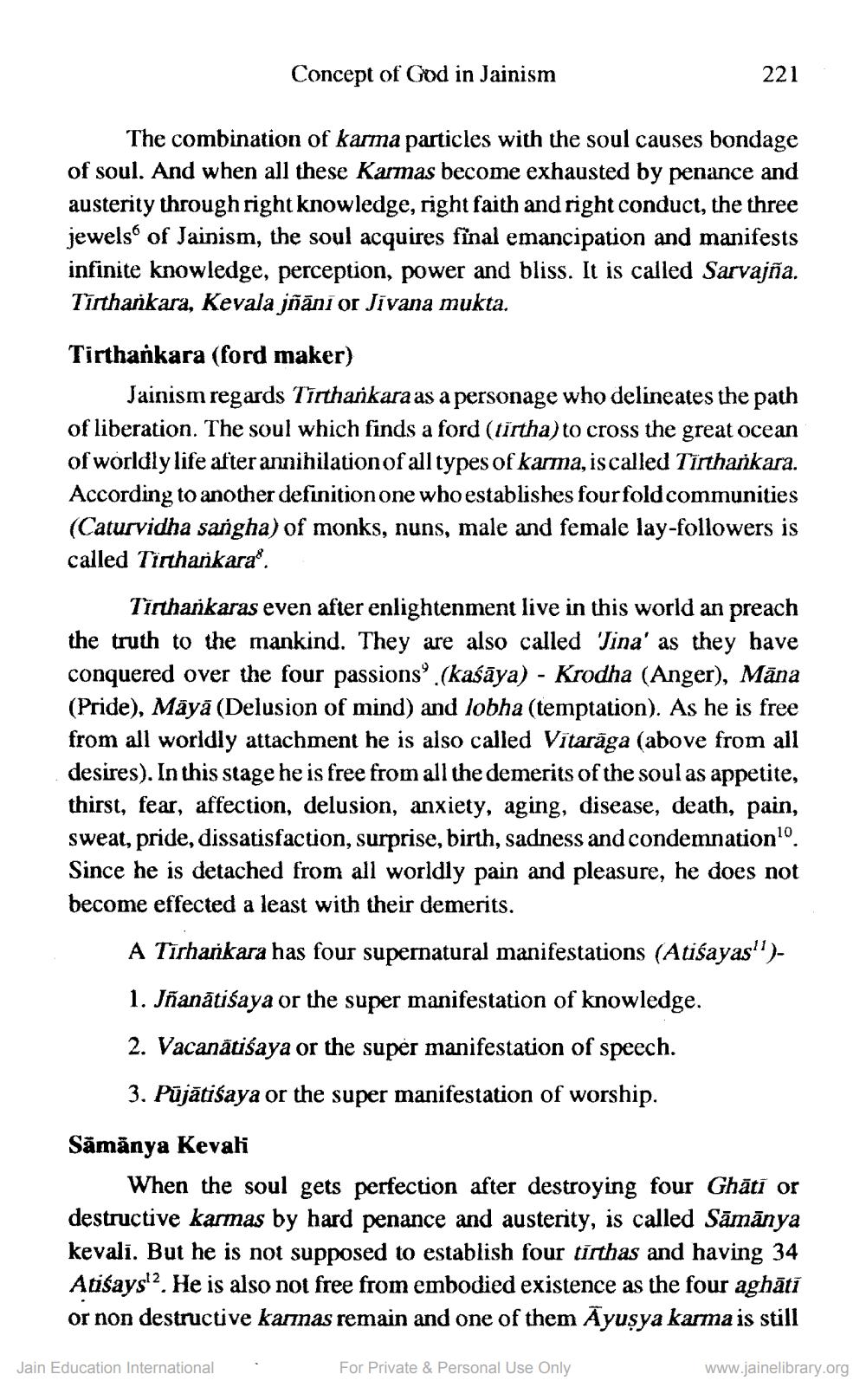________________
Concept of God in Jainism
221
The combination of karma particles with the soul causes bondage of soul. And when all these Karmas become exhausted by penance and austerity through right knowledge, right faith and right conduct, the three jewels of Jainism, the soul acquires final emancipation and manifests infinite knowledge, perception, power and bliss. It is called Sarvajña. Tīnthankara, Kevala jñānior Jivana mukta.
Tirthankara (ford maker)
Jainism regards Tirthankara as a personage who delineates the path of liberation. The soul which finds a ford (tirtha) to cross the great ocean of worldly life after annihilation of all types of karma, is called Tīrthankara. According to another definition one who establishes fourfold communities (Caturvidha sargha) of monks, nuns, male and female lay-followers is called Tirtharikara.
Tirtharkaras even after enlightenment live in this world an preach the truth to the mankind. They are also called Jina' as they have conquered over the four passions (kaśāya) - Krodha (Anger), Māna (Pride), Mäyä (Delusion of mind) and lobha (temptation). As he is free from all worldly attachment he is also called Vitarāga (above from all desires). In this stage he is free from all the demerits of the soul as appetite, thirst, fear, affection, delusion, anxiety, aging, disease, death, pain, sweat, pride, dissatisfaction, surprise, birth, sadness and condemnation. Since he is detached from all worldly pain and pleasure, he does not become effected a least with their demerits.
A Tīrhankara has four supernatural manifestations (Atiśayas')1. Jñanātisaya or the super manifestation of knowledge. 2. Vacanätiśaya or the super manifestation of speech.
3. Pūjātiśaya or the super manifestation of worship. Sãmânya Kevali
When the soul gets perfection after destroying four Ghāti or destructive karmas by hard penance and austerity, is called Sāmānya kevali. But he is not supposed to establish four tirthas and having 34 Atiśays!?. He is also not free from embodied existence as the four aghāti or non destructive karīnas remain and one of them Āyusya karma is still
Jain Education International
For Private & Personal Use Only
www.jainelibrary.org




